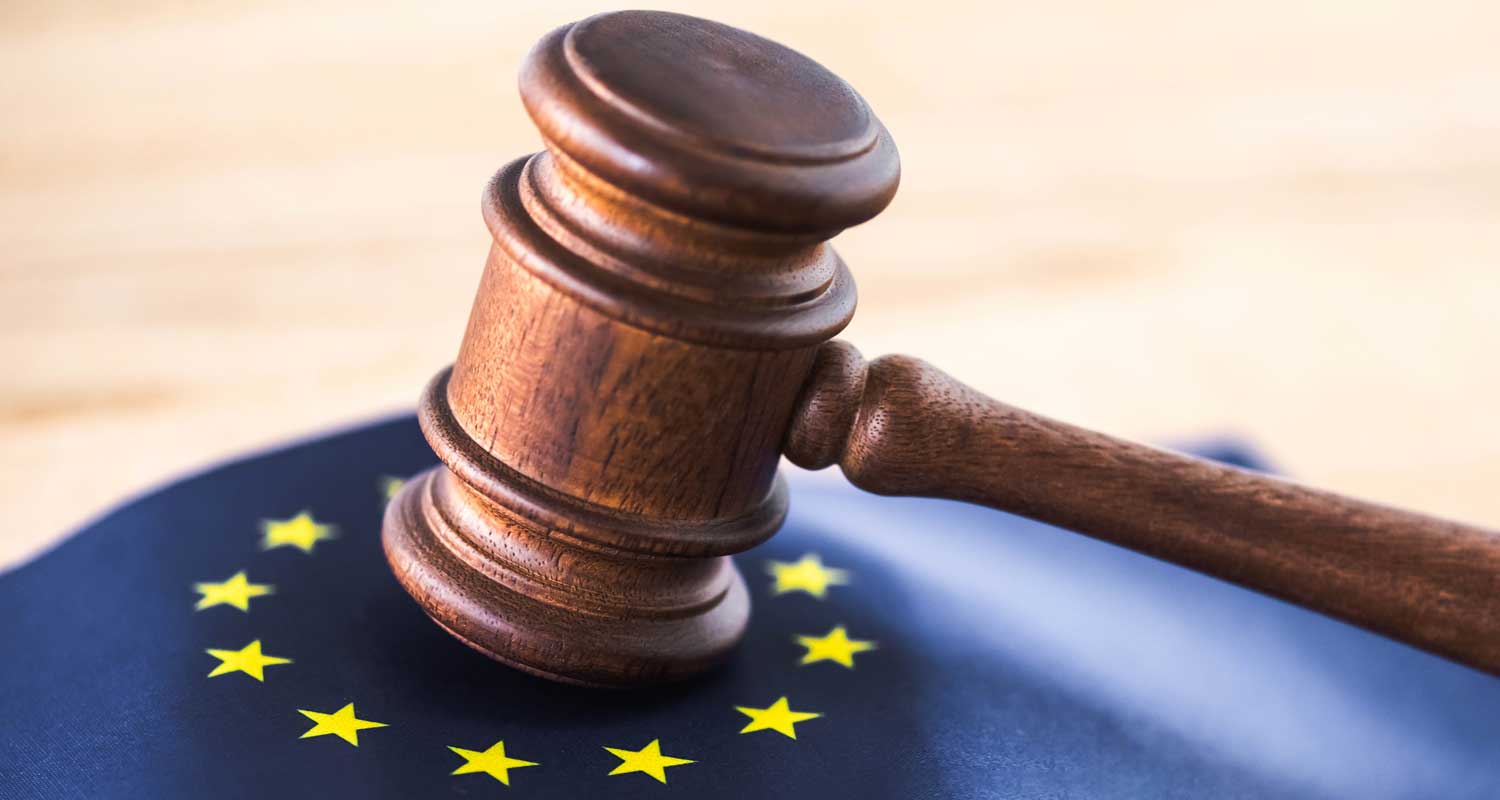There are, broadly, three options when countries consider the direction of their public policy paradigms, represented by the three major economic powers of the world. The first is production, represented by Asia, and particularly China. The second is innovation, primarily represented by the US – the origin of the present generative artificial intelligence boom. And the final is regulation, represented by the EU.
Of course, South Africa’s political elite has long chosen the third option. This is manifested not only in the recent call by parliament for podcasts to be regulated, but also by the department of communications & digital technologies’ framework published in August 2024 proposing a regulatory dispensation for AI.
While the framework is light on details, the premise is questionable, and the “Brussels effect” looms large in the background.
Do we need AI regulation? Most people, upon learning that there is a social, commercial or technological space that is not covered by the blanket of some or other state regulation, will answer “yes, of course”, before any actual thinking has occurred.
But the notion that absolutely everything must be controlled by government fiat is a dangerous one. Political abuse will always be more harmful to society than the developments occurring in large language models and image and video generators could ever hope to be.
AI framework
That the department wants AI technology to be channelled into driving economic growth and welfare, and making South Africa an AI innovation hub, is laudable. However, these goals must not be pursued under the guise of regulation, which is almost certainly what the hundred-pages-long white paper that will eventually follow this 13-page discussion document will propose.
Rather, liberalisation is what can make South Africa an AI powerhouse.
The department, at this initial point, proposes among other things that:
- AI be developed in line with “South Africa’s socioeconomic goals and values”: Regrettably, whenever notions like these are mooted by the South African government, they almost always involve some kind of rent-seeking wealth transfers at least, and race-based discrimination at worst.
- A national AI policy be developed to form the basis for future regulations and potentially an AI Act: The immediate jump to regulation is an unfortunate byproduct of an anti-innovation, anti-production, pro-bureaucracy political mentality.
- The development of “explainable AI” that “provide clear, understandable outputs” be promoted: Already the micromanagement of this dynamic sector begins, when these matters are properly technological and not regulatory. The best and most “explainable” AIs will rise to the top in a competitive, liberalised market.
- AI systems be aimed at the promotion of “human well-being, equality, and environmental sustainability”: This, regrettably, nears ideological regimentation of AI. As manifested in the recent amendments to the 2000 Equality Act, the South African government has a very specific and peculiar definition of “equality” in mind, and it has the effect of suppressing more conventional conceptualisations.
The framework acknowledges that regulation might stand in the way of the rapid pace of technological change, especially in a space like AI, but fails to appreciate that it is creating the exact environment for this to occur. From experience, we know empty platitudes of “this time we’ll do better” are dead letter.
Where the framework alludes to the integration of AI into the public sector for efficiency’s sake, however, is where the focus should be. South Africa’s bloated and ineffective public service would do well to utilise AI appropriately, and the department of communications & digital technologies could lead the way in this without setting the scene for AI regulation in civic and commercial society.

Brussels effect
The real problem with the department’s framework, however, is the almost blink-and-you’ll-miss-it reference to South Africa having to align “with global AI governance standards”. The key thing to understand is that there are no “global” AI standards, only persuasive foreign ones.
We must, as a general rule, pause when policy papers like this allude to aligning with amorphous and seemingly neutral “global standards”, because with the benefit of past experience we know the South African government rarely has the Americans, with their generally laissez-faire approach, or the East Asians, whose policies are aimed at producing at scale, in mind.
And in the context of AI regulation, this is no exception. The “global standards” that the AI framework refers to almost definitely means the EU Artificial Intelligence Act – which is, really, the only game in town.
This is because, in line with the policy demeanour of the EU that I alluded to earlier, it is no surprise that the European parliament prides itself on its behemoth AI Act being the “world’s first comprehensive AI law”.
This labyrinthine act subjects what it regards as “high-risk” AI to various “conformity assessments”.
Like the EU’s General Data Protection Regulation (GDPR), the AI Act has extraterritorial scope, meaning that if a South African tech firm develops an AI that is to be accessible in Europe, it must comply with the EU’s regulatory framework. This firm would also be required to appoint a representative in the EU “to enable enforcement of this” act, and it must comply with the EU Copyright Directive, which imposes significant compliance burdens.
Through the Brussels effect, local firms will thus tend to adapt themselves to the EU’s rules and standards, and regulators in South Africa are expected to follow later on, adopting something resembling the EU AI Act into our law. This is almost certainly what the department of communications & digital technologies has in mind when it ponders a local AI Act.
‘Race to the bottom’
This is not good, as it causes a “race to the bottom” of overzealous regulation encouraged almost exclusively by a backwards, perhaps latently imperialistic mindset evident in the Brussels establishment.
If the EU wants to regulate AIs being produced in the EU, or companies registered in the EU, that is one thing. But for its reach to apply to foreign developers – especially in the developing world – to which Europeans, by virtue of the nature of the internet, would have access, is problematic.
South Africans access American and European content and products online every day, but the notion that the US or the EU should adapt to South African law would rightly be seen as an unduly arrogant posture.
Read: The SA start-up using AI to read X-rays – and save lives
Egle Markeviciute, head of digital and innovation policies at the international Consumer Choice Center, warned at the adoption of the EU AI Act that innovation requires “room and tolerance for experimentation and risk” and that the act’s “controlled innovation” would stifle dynamism in the sector.
Boniface de Champris similarly noted that the act – like almost all South African legislation – was not accompanied by a cost/benefit analysis, and supposes potential AI risks and harms to specific sectors without considering whether there are in fact larger benefits to be secured.
 Others have noted the excessive compliance costs that the act imposes on a relatively young industry, into which newer and smaller tech firms are trying to break. Not all AI – and certainly not those South Africa will hope to develop – comes from OpenAI, Meta or xAI, after all.
Others have noted the excessive compliance costs that the act imposes on a relatively young industry, into which newer and smaller tech firms are trying to break. Not all AI – and certainly not those South Africa will hope to develop – comes from OpenAI, Meta or xAI, after all.
There’s a better model
The EU model of regulation at the expense of innovation or production is inherently a misguided one, but one that can be sustained without causing too much damage in an economy as big and healthy as Europe’s. It is conceivable for European firms, even small ones, to achieve compliance with the act.
This model is however extremely dangerous in the developing world, including South Africa. South Africans’ desire to be embraced by the “loving” and “protective” arms of its father-figure state has led and can lead to bad places, and regrettably the EU sets an irresponsible example that our political elite will be all too eager to mimic in the AI space.
Read: Is Google’s search empire crumbling? AI signals concern
Market liberalisation has been shown to be the only surefire way for an economy to turbocharge development, welfare and prosperity. Marc Andreessen’s Techno-Optimist Manifesto encapsulates precisely the mentality with which we must approach the incredible potential of AI – premised on freedom, adventure, and a rejection of overcaution and perceiving ourselves as victims.

